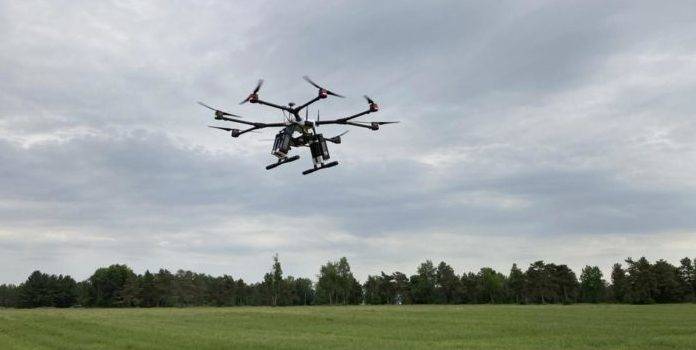(Jacob Bruns, Headline USA) Colorado announced that it would begin using drones for law enforcement in many cases rather than police officers, the Denver Post reported.
Sgt. Jeremiah Gates, who oversees the drone unit at the Arapahoe County Sheriff’s Office, said police officers who resisted drone usage would find themselves on the wrong side of history.
“This really is the future of law enforcement at some point, whether we like it or not,” he said.
Gates also suggested that drones would help municipalities around the state save money and time. Giving the example of inspecting a car parked in an illegal parking spot, he said that a drone could simply be sent to investigate.
“I could fly the drone over and say, ‘Hey, that vehicle is not out of place,’ and I never had to send an officer over to bother them and I can clear it with that,” he said. “It’s saving resources.”
But not everybody is in support of drone usage.
Laura Moraff, a staff attorney with the American Civil Liberties Union of Colorado, signaled that the leftist legal group may step in to try to stop the usage of drones because such technologies might interfere with their protests and activism.
“We’re worried about what it would mean if drones were really just all over the skies in Colorado,” Moraff noted.
“We are worried about what that would mean for First Amendment activities, for speech and organizing and protesting—because being surveilled by law enforcement, including by drones, can change the way people speak and protest.”
Moraff also suggested that the drones might be racist.
“We know there is a problem with people reporting black people doing normal everyday things as if there is something suspicious going on,” she said, adding that the newfound efficiency that the technology afforded to local law enforcement would likely lead to “over-policing of communities of color.”
Leaving Moraff’s concerns about racism aside, there is some reason to believe that the addition of drones will aid the surveillance state.
Phil Gonshak, director of the department’s Strategic Initiatives Bureau disturbingly boasted that drones may also eventually take the place of first responders altogether.
“The long-term scope of what we are trying to do is drones as first responders,” he said. “Basically, having stations on top of each one of our districts so we can respond with drones to critical needs or emergencies that arise throughout the city.”

